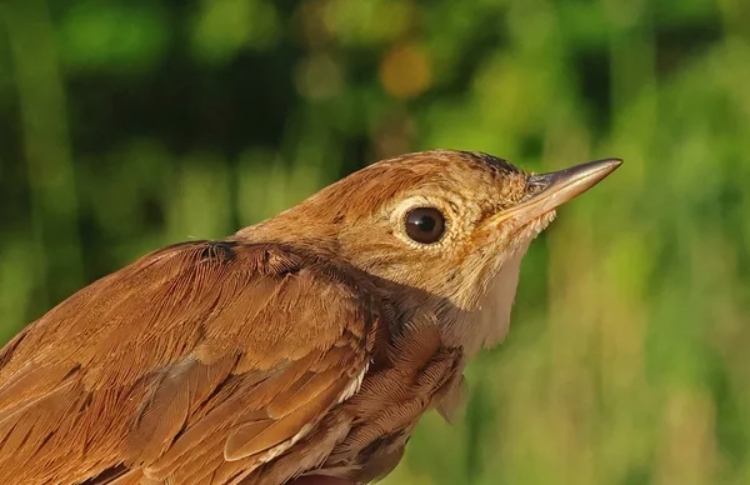Gambiaj.com – (Banjul, The Gambia) – The fate of the English nightingale, one of nature’s most enchanting songbirds, is increasingly tied to the fragile ecosystems of The Gambia, where habitat destruction is imperiling these migratory birds during their winter sojourn.
New research by the British Trust for Ornithology (BTO) reveals that English nightingales, whose populations in the UK have plummeted by 90% in recent decades, spend their tropical winters exclusively in a small area of West Africa.
While nightingales from other parts of Europe spread out widely across the continent, English nightingales confine themselves to a concentrated region around The Gambia, Senegal, and Guinea Bissau—leaving them highly vulnerable to local environmental pressures.
“The Gambia has had two severe droughts recently, and overgrazing by goats is having a big impact on the scrubby habitat these birds rely on,” said Dr. Chris Hewson, senior research ecologist at BTO. “It’s not just the arduous journey of 6,000 miles they face, but the fact that their wintering grounds in The Gambia have deteriorated so much since the 1960s.”
The country’s natural habitats are under constant pressure from a growing human population and expanding tourism development, which gnaw away at the scrubland and coastal ecosystems vital for the nightingales’ survival.
Locals rely heavily on firewood and land for agriculture, while goats graze indiscriminately, eroding the fragile undergrowth where nightingales rest and feed.
Dr Chris Hewson, senior research ecologist at BTO said, “So, it seems they are stuck with The Gambia and it’s not just the perilous, 6,000-mile round trip to the wrong place that adds to a nightingale’s woes. The needs of a growing human population – for firewood and food, as well as the demands of tourist development – are gnawing away at the natural ecosystems.”
In the UK, where nightingales’ songs once filled the air each summer, these elusive birds are now largely confined to dwindling habitats in Kent, Sussex, and Essex. Listed as a species of conservation concern since 2015, the nightingale’s UK population is unique in Europe for its ongoing decline.
“The situation in The Gambia has undoubtedly contributed to this downward spiral,” said Dr. Hewson. “The nightingales are effectively stuck in a region that may no longer be ideal, and if they tried to relocate within West Africa, they’d find the best habitats already occupied by their European cousins.”
Efforts are underway to better understand the nightingales’ perilous journey, including using radio-receiving towers to track their migration and identify where losses occur. Yet, without urgent protection of their wintering grounds in The Gambia, conservationists fear the English nightingale’s melodic song could be silenced forever.
For now, the plight of the nightingale stands as a stark reminder: preserving natural habitats in The Gambia is not just about protecting local wildlife but also about saving a cherished symbol of summer thousands of miles away.










